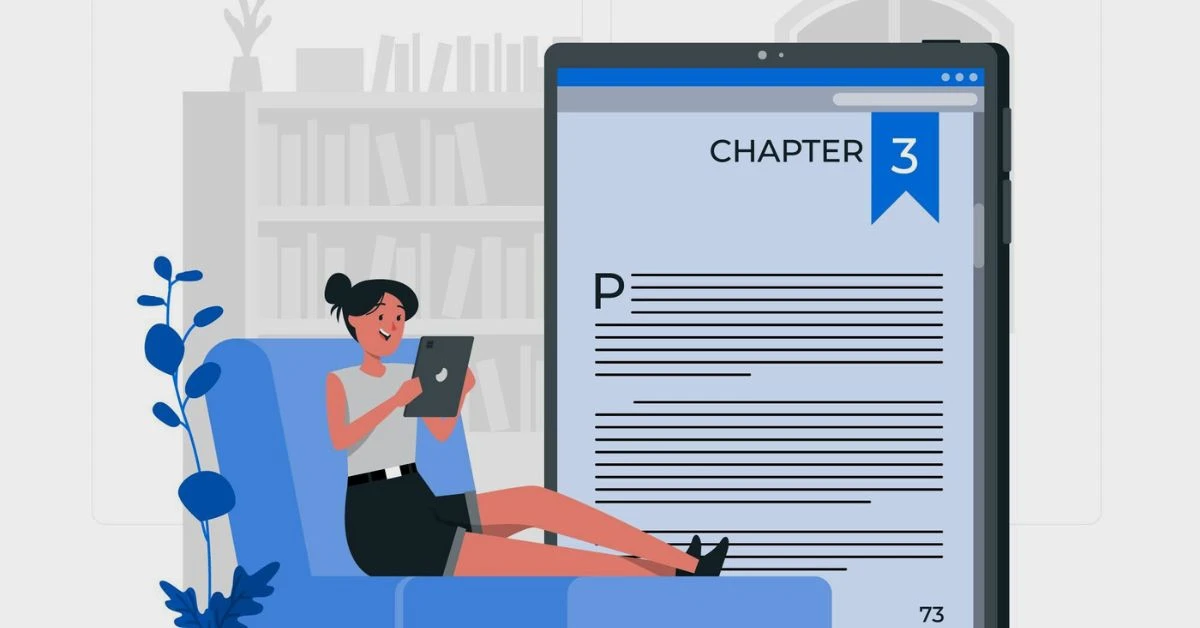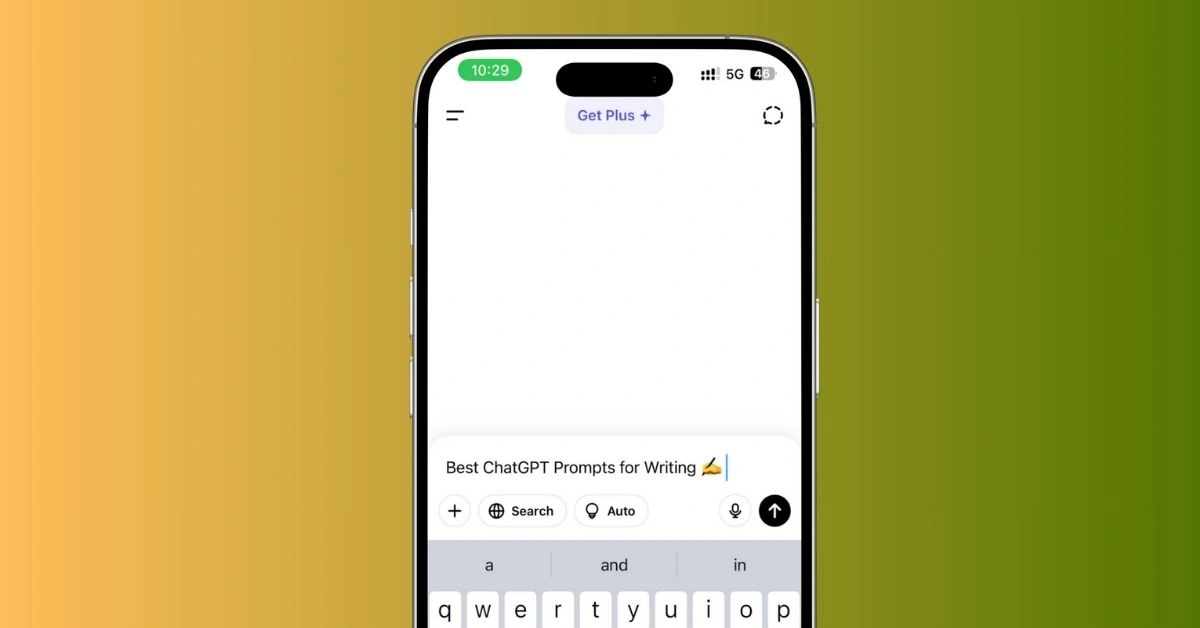200+ ChatGPT Prompts for Studying
If you’re a student, chances are you’ve already heard about ChatGPT.
But here’s the thing: ChatGPT is only as smart as the prompt you give it.
Ask it a vague question, and you’ll get a vague answer.
But ask it the right way? That’s when the magic happens.
In this guide, I’ll walk you through the best ChatGPT prompts for students, grouped by specific use cases like studying, writing essays, solving problems, and more.
I’ve tested these myself — and trust me, they work.
Ready to study smarter (not harder)?
Let’s dive in.
I’ve also shared a guide on the top AI apps for students.
Be sure to check it out—they’re incredibly helpful and might just become your new go-to tools
Best ChatGPT Prompts for Students
Understanding complex topics is one of the biggest struggles for students.
But ChatGPT can act like a personal tutor that’s always available to break things down, simplify the confusing parts, and even quiz you to reinforce learning.
To make things incredibly easy, I’ve split this section into two parts:
Part 1: Prompts Based on Student Use Cases
- Use these when you have a goal in mind — like studying for exams, finishing homework, or writing better essays.
Part 2: Prompts Based on Subjects
- Perfect for when you’re stuck on a topic and need help in a specific class, like Math, History, or Science.
Let’s dive into the first part.
Part 1: ChatGPT Prompts by Use Case
Below are ready-to-use prompts grouped by common learning scenarios.
These are perfect for high school and college students.
Just swap out the topic based on your needs.
1. Understanding Difficult Concepts
- Explain [concept] like I’m in [grade/class].
- Break down [concept] into simple terms anyone can understand.
- What are the key ideas behind [topic]?
- Teach me [concept] step-by-step like you’re my tutor.
- Explain [topic] with a real-life example.
- What are common misconceptions about [topic]?
- Can you give me a visual analogy for [topic]?
- What’s the difference between [concept A] and [concept B]?
- What’s the easiest way to understand [concept]?
- What are the core principles of [topic] I must know for class?
- Simplify [concept] to a one-paragraph summary.
- Explain [topic] using a sports or food analogy.
- Give me 3 real-world situations where [concept] is used.
- What is [concept], and why is it important?
- Create a beginner-friendly guide to understanding [topic].
- How would you explain [topic] to someone with no background knowledge?
- Break this into a 3-part explanation: basics, deeper understanding, advanced.
- What’s a good metaphor to help remember [concept]?
- Teach me [concept] like you’re explaining to a friend.
- Why do students usually get confused about [topic]? Explain clearly.
2. Homework Help
- Solve this problem step by step: [paste question]
- Help me write a paragraph about [topic] in 100–150 words.
- Explain what this question is really asking: [paste question]
- Rewrite this assignment in clearer words: [paste prompt]
- Help me outline a response to this question: [paste topic]
- Fix any grammar or clarity issues in this text: [paste text]
- Give me 3 different ways to answer this essay question: [paste question]
- Turn this paragraph into bullet points: [paste text]
- Explain this diagram or graph: [paste description or upload]
- Translate these class notes into simpler language: [paste notes]
- Can you help brainstorm 3 creative answers to this homework prompt?
- Rephrase this explanation in clearer terms: [paste explanation]
- Turn this problem into a visual explanation I can understand.
- I need examples to complete this assignment: [describe task]
- What sources can I use to support this argument: [paste claim or thesis]
- Show me how to approach this problem logically.
- What’s the best structure for answering this assignment?
- Turn this list of facts into a short summary.
- What am I missing in my answer? Here’s what I wrote: [paste response]
- Can you give me feedback on this answer?
3. Exam Preparation & Quizzing
- Make a 10-question quiz on [topic] with answers.
- Quiz me on [topic] — include correct/incorrect options.
- Create a list of must-know terms for [subject or topic].
- What are the most tested points about [topic] in exams?
- Create flashcards for [topic].
- Turn these notes into a study guide: [paste notes]
- What are 5 sample short-answer questions about [topic]?
- What’s the easiest way to memorize [list or concept]?
- What formulas should I know for [math/science topic]?
- Make a summary sheet for [topic].
- Explain how to solve this type of problem: [describe format]
- Give me last-minute tips for studying [topic].
- Test me on this material: [paste content].
- Turn this textbook chapter into a quick summary.
- Highlight the most important info in this paragraph: [paste text]
- Create a comparison table for [concept A] vs [concept B].
- What are the key dates/events I should remember about [historical event]?
- Create a mnemonic to help me remember [concept or list].
- Help me study smarter, not harder, for [exam name].
- What’s a good 3-day cram plan for my [subject] exam?
4. Writing Assistance
- Help me brainstorm ideas for an essay on [topic].
- Suggest 5 thesis statements about [topic].
- Outline a 5-paragraph essay on [topic].
- Turn this messy draft into a cleaner version: [paste text]
- Rewrite this intro to make it more persuasive: [paste intro]
- Check this paragraph for grammar and clarity: [paste text]
- Help me write a better conclusion for this essay: [paste conclusion]
- Can you improve this argument and add evidence?
- Turn this short idea into a full paragraph.
- What counterarguments should I consider for [opinion]?
- Rephrase this to sound more academic: [paste sentence]
- What transition words can I use here: [paste paragraph]
- Help me cut word count without losing meaning: [paste text]
- Make this more concise and readable.
- Suggest quotes or references I can include for [essay topic].
- Can you rate this essay and give me feedback?
- Turn this outline into a rough draft.
- What’s a stronger hook for this introduction: [paste hook]
- Turn this into a compare-and-contrast structure.
- How can I improve the flow of my writing here?
I’ve also rounded up my favorite ChatGPT prompts for writing—definitely worth checking out if you’re interested.
5. Time Management & Study Planning
- Make me a 5-day study plan for [subject or exam].
- What’s a good Pomodoro schedule for today?
- Help me plan a study routine that fits my schedule.
- Create a morning and evening study ritual I can stick to.
- Break this big topic into smaller chunks: [paste topic]
- How can I stop procrastinating on [task]?
- Give me 3 study hacks for staying focused while reading.
- Design a weekend study schedule for test prep.
- How do I review smarter, not longer?
- Create a to-do list for preparing for my [subject] final exam.
- How do I avoid burnout while studying?
- What’s the best way to balance multiple subjects?
- Give me a checklist to prepare for exams a week ahead.
- Suggest time management strategies for students.
- Help me create a no-stress revision timetable.
- How do I stay motivated while preparing for finals?
- Suggest apps that can improve my focus or time tracking.
- What’s a realistic daily routine for a student with ADHD?
- Turn this chaotic schedule into a manageable plan: [paste schedule]
- I only have 3 days left — what’s the best way to study?
You might also find these popular calendar apps for students incredibly useful.
They’re designed to help you stay organized, manage your schedule efficiently, and plan your tasks effectively.
6. Language Learning Prompts
- Translate this sentence into Spanish: “I am going to the library.”
- Explain this grammar rule: [paste rule or sentence]
- What are 10 useful phrases in French for travelers?
- Conjugate this verb in all tenses: [verb]
- Test me on 20 common German nouns.
- What are the differences between “ser” and “estar”?
- Give me beginner-level flashcards for Italian vocabulary.
- What’s the gender rule for nouns in French?
- Help me build a 5-sentence paragraph in Spanish about my weekend.
- Create a daily language learning plan for me.
- What are the top 50 most used verbs in French?
- Translate and explain this idiom: [paste idiom]
- Give me a short dialogue between two people at a café in German.
- Turn this sentence into a question in Spanish: [paste sentence]
- Help me write a short story in French using simple tenses.
- Break this sentence down word by word: [paste sentence]
- Test me on irregular verb forms in German.
- Translate these vocabulary words and quiz me: [list]
- Create a mini test on present tense verbs in Spanish.
- How can I improve my pronunciation in [language]?
I’ve compiled a list of the best language learning apps to help you level up your skills.
Take a look if you’re ready to start your language learning journey.
Part 2: ChatGPT Prompts by Subject
These prompts are perfect for when you’re stuck on a specific topic in class and need clear, instant help.
Whether you’re revising, doing homework, or preparing for a test, you can copy-paste these into ChatGPT and start learning right away.
1. Math Prompts (Algebra, Geometry, Calculus, etc.)
- Solve this equation step by step: [paste problem]
- Explain the concept of limits in calculus in simple terms.
- What’s the easiest way to understand the quadratic formula?
- Show me how to graph this equation: [paste equation]
- What’s the difference between permutations and combinations?
- Teach me how to use the Pythagorean Theorem.
- What are derivatives, and how do they work?
- Create a practice quiz for solving linear equations.
- Explain this word problem clearly: [paste word problem]
- Walk me through how to solve a system of equations.
- How do I know when to factor vs. expand in algebra?
- Convert this word problem into a math expression: [paste text]
- Break down the steps of solving inequalities.
- Create a table of basic geometry formulas with examples.
- Explain the difference between mean, median, and mode.
- What’s a real-life application of calculus?
- Give me a shortcut to understanding exponents.
- Help me understand the unit circle in trigonometry.
- What’s the fastest way to memorize math formulas?
- Can you explain how to simplify rational expressions?
2. Science Prompts (Biology, Chemistry, Physics)
- Explain photosynthesis like I’m in 9th grade.
- What’s the difference between mitosis and meiosis?
- Describe Newton’s three laws with real-life examples.
- What is the periodic table, and how is it organized?
- How does the water cycle work?
- Give me a short summary of the theory of evolution.
- Break down the structure of an atom.
- Explain the concept of energy conservation in physics.
- What happens during a chemical reaction?
- Create a table comparing prokaryotic vs eukaryotic cells.
- What’s the difference between speed and velocity?
- Help me memorize the major bones in the human body.
- What are acids and bases, and how do they differ?
- Teach me how electricity flows through a circuit.
- What’s the greenhouse effect, and why does it matter?
- How does natural selection work in simple words?
- Create a summary of the digestive system and its parts.
- What are the major types of chemical bonds?
- Turn this chapter on cell biology into a short study guide.
- Explain kinetic vs potential energy with examples.
3. History & Social Studies Prompts
- Summarize the causes of World War I in 5 bullet points.
- What were the major outcomes of the Cold War?
- Explain the significance of the French Revolution.
- Who were the key figures in the Civil Rights Movement?
- Compare feudalism and capitalism in one paragraph.
- What was the Industrial Revolution, and why is it important?
- List the causes and consequences of the American Civil War.
- Create a timeline of major events in World War II.
- What was the main idea behind the Enlightenment?
- Explain the structure of the U.S. Constitution.
- What led to the fall of the Roman Empire?
- Describe the role of women in ancient civilizations.
- How did colonization impact indigenous populations?
- What was the Great Depression, and what caused it?
- Compare democracy and authoritarianism in plain terms.
- Explain the impact of Gandhi’s nonviolent resistance.
- Give me a short biography of Nelson Mandela.
- Why was the Berlin Wall built and later destroyed?
- What’s the significance of the Renaissance?
- Create a study guide for AP World History Unit 1.
4. English Literature & Language Arts Prompts
- Summarize the plot of Macbeth in simple language.
- What is the theme of To Kill a Mockingbird?
- Compare the characters of Gatsby and Nick in The Great Gatsby.
- Help me analyze this poem: [paste poem]
- What literary devices are used in this paragraph? [paste text]
- Give me a 5-point character analysis of Holden Caulfield.
- Turn this paragraph into academic-style writing: [paste text]
- What’s the central conflict in Lord of the Flies?
- Help me write a short essay on the theme of identity in literature.
- Break down this Shakespearean passage in modern English.
- What’s the significance of the setting in Of Mice and Men?
- Give me 3 quotes that support this theme: [insert theme]
- What’s the tone of this passage, and how do you know? [paste text]
- Outline a 5-paragraph literary analysis of [book title].
- How does the author use symbolism in Animal Farm?
- Help me compare two poems on the same theme.
- What’s a strong thesis for an essay on [literary theme]?
- Turn this idea into a full essay outline: [paste idea]
- Can you explain the use of irony in this text? [paste excerpt]
- Rewrite this sentence to sound more formal: [paste sentence]
Tips for Prompting ChatGPT Like a Pro
ChatGPT is only as helpful as the prompt you give it.
If you want clear, accurate, and useful answers every time, follow these simple prompt-crafting tips:
1. Be Clear and Specific
Instead of: Help me with this topic.
Try: Explain the causes of the American Revolution in 5 bullet points suitable for a 10th grader.
The more details you provide (like subject, level, format, or length), the better the output.
2. Set a Format or Goal
Ask for content in a particular format: bullet points, paragraphs, tables, or quiz questions.
Example: Summarize this topic in a table comparing causes vs effects.
3. Define the Audience Level
Want an explanation that fits your grade level? Say so.
Example: Explain mitosis like I’m in 7th grade.
4. Paste What You’re Working On
For help with writing or editing, paste your draft.
Example: Edit this paragraph for grammar and clarity: [paste your text]
5. Ask for Step-by-Step Help
Especially useful in math or problem-solving prompts.
Example: Solve this equation step by step and explain each move: (2x + 3)(x – 5) = 0
6. Use Follow-Up Questions
ChatGPT works great in conversation.
If something isn’t clear, follow up with:
- Can you simplify that?
- Can you give an example?
7. Include Context When Needed
If you’re studying a specific topic or textbook, tell ChatGPT.
Example: Create a quiz based on Chapter 3 of my AP Biology book about genetics.
8. Tell It What You Want to Avoid
Not every answer needs fluff or extra detail.
You can say:
- Give me only bullet points.
- Keep it short and concise.
- Avoid technical jargon.
9. Test Yourself With Roleplay Prompts
Use ChatGPT as a study partner:
- Act as my Spanish teacher and quiz me on irregular verbs.
- Pretend you’re my debate opponent — argue against social media.
10. Refine Until It’s Right
If the response isn’t exactly what you wanted, tweak your prompt and try again.
Learning to prompt well is a skill.
And it improves the more you practice.
Final Tips for Students Using ChatGPT
While ChatGPT can be a powerful tool for studying, writing, and organizing your learning, here are a few final reminders to help you use it wisely:
1. Don’t Copy-Paste Answers Blindly
ChatGPT is helpful, but it’s not infallible.
Always fact-check answers—especially for historical events, science definitions, and citations.
Use it as a starting point, not the final submission.
2. Combine ChatGPT with Your Own Notes
The best way to reinforce what you learn is by comparing AI-generated answers with your class notes or textbooks.
This helps you spot missing points and strengthens your understanding.
3. Use ChatGPT as a Study Partner, Not a Shortcut
It’s tempting to let AI do the heavy lifting.
But remember, the goal is to learn, not just finish assignments.
Use ChatGPT to quiz yourself, clarify doubts, and get feedback.
But do the thinking yourself.
4. Practice Ethical Use
Using ChatGPT to learn better = smart.
Using it to cheat = risky and wrong.
Your growth matters more than quick wins.
FAQs
1. Is it okay for students to use ChatGPT?
Yes — as long as you’re using it ethically. ChatGPT is great for learning, brainstorming, studying, and organizing your thoughts. Just don’t rely on it to do all the work for you, especially in graded assignments.
2. Can ChatGPT help me with homework?
Absolutely. It can explain concepts, walk you through math problems, correct grammar, or even help you draft essays. Just remember to double-check the information it provides.
3. How do I make ChatGPT give better answers?
Be clear and specific with your prompts. For example, say: “Explain the causes of the Cold War in 5 bullet points for a 10th grader.” rather than just: “What caused the Cold War?” Check out the Prompt Cheatsheet above for more examples.
4. Is ChatGPT accurate for schoolwork?
ChatGPT is mostly accurate, but it can occasionally give outdated or incorrect info — especially for niche topics. Always cross-reference its answers with reliable sources like textbooks or teacher-provided materials.
5. Can ChatGPT write essays for me?
It can help you outline, brainstorm ideas, and edit drafts, but writing full essays using AI alone isn’t recommended (and in many cases, against academic rules). Use it as a helper, not a replacement.
6. Can I use ChatGPT for studying before exams?
Definitely. You can ask it to quiz you, explain tough topics, summarize chapters, or even create mock tests. It’s like having a personal tutor on demand.
7. Can ChatGPT help me write a school project or speech?
Absolutely. Try this prompt: “Help me write a 1-minute speech on recycling.”
8. Can I use ChatGPT to make flashcards for studying?
Yes. Just say: “Make flashcards for key vocabulary in Chapter 4 of my science book.”
9. Can ChatGPT help me with academic writing or research?
It can help you brainstorm thesis ideas, structure essays, clarify complex theories, or even suggest citations (but always verify them).
10. Is ChatGPT reliable for college-level assignments?
It’s a great starting point but not a final source. Always cross-check its facts and sources using your syllabus or academic materials.
11. Can ChatGPT help with time management during the semester?
Totally. Try: “Create a weekly study schedule for my psychology midterm and two assignments.”
12. Can ChatGPT solve complex math problems?
Yes — and it can walk you through step-by-step solutions. Just give it a clear equation.
13. Can ChatGPT help me practice a new language?
Yes. Use it like a tutor: “Translate ‘I want to eat pizza’ into Spanish and explain the grammar.” Or “Test me with 5 basic French questions and wait for my answers.”
14. What are some of the best prompts for students?
Here are a few quick examples:
→ Summarize the water cycle in 5 bullet points.
→ Correct grammar in this sentence: ‘He go to school everyday.’
→ Create a 10-question quiz on World War II with answers.
Check the main list above for 200+ more.
My Final Take
ChatGPT isn’t just another shiny AI tool.
It can genuinely transform how students study, learn, and grow.
But how you use it makes all the difference.
If you’re just copying and pasting answers to finish homework faster, you’ll miss out on the real value.
But if you use ChatGPT to ask better questions, explore ideas, and truly understand your subjects, that’s where the magic happens.
So whether you’re stuck on a tricky math problem or need a quick study plan for an upcoming test, try turning to ChatGPT with a smart prompt.
Use the cheatsheet.
Experiment.
Ask follow-ups.
Make it your study buddy, not your shortcut.
And remember: the goal isn’t just to get it done.
It’s to get better at learning.
And that’s a wrap from my side.
If you have additional prompts that could benefit students, feel free to share them in the comments.
Your insights might just make a difference for fellow learners.






